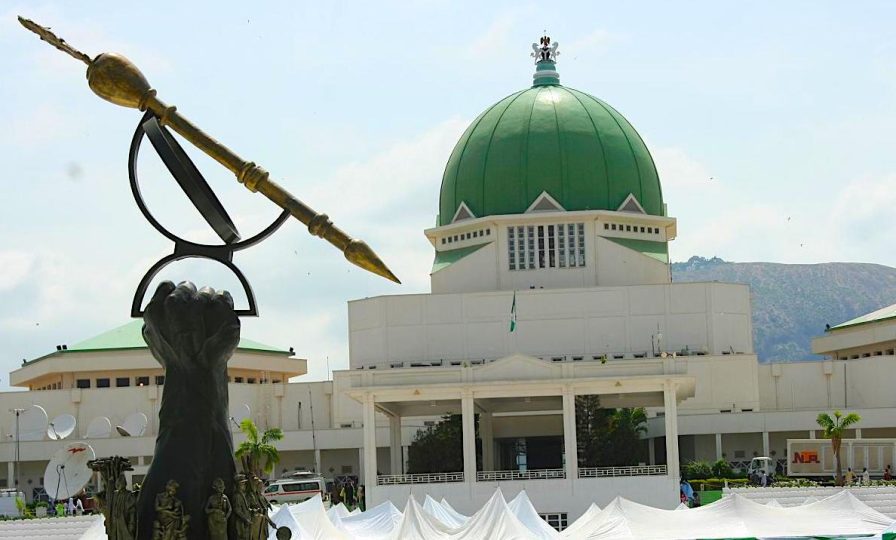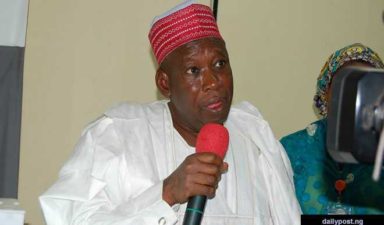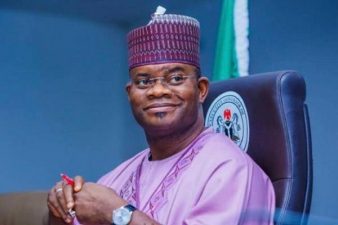By BASHIR ADEFAKA
The Constitution should be amended to protect the rights of indigenous peoples to strengthen and maintain their spiritual relationship with their traditionally owned or otherwise occupied and used lands, territories, waters, and coastal seas and other resources and to uphold their responsibilities to future generations in this regard.
READ ALSO An address to our traditional rulers, by Lagos State Group
READ ALSO {OPINION} The usurpation of indigenes’ opportunities, rights ongoing in Lagos State
These were the words of De Renaissance Patriots Foundation of Lagos State indigenes as contained in the document “On Indigeneship and Residency: A Memorandum Submitted for The 2024 Constitution Review”, which it submitted to the constitution review committee of the National Assembly, recently.
READ ALSO DISPLACEMENT: ‘We must stop the genocide by immigration now’, Group charges Obas in Lagos
READ ALSO LAGOS STATE: ‘De Renaissance Patriots’ debuts to lead better state for indigenes
It added that the laws should align with Article 27 of UNDRIP.
“In accordance with Article 18[ ] of UNDRIP, the Constitution must include provisions to ensure indigenous peoples have the right to participate fully and exclusively, if they choose, at all levels of decision-making in matters which may affect their rights, lives, and destinies. This could involve amendments to sections dealing with political representation and participation.
READ ALSO LAGOS: ‘The rebirth starts now’, De Renaissance Patriots release second statement {FULL TEXT}
“Federal Character Commission as the Federal entity now empowered in the Third schedule should be further strengthened to implement its mandate,” the group demanded in the memorandum jointly signed by 14 members of its steering committee including Prof. Ilyas Adele Jinadu, Major General Tajudeen Olanrewaju (Rtd), Major General Leo Ajiborisha (Rtd), Justice Solomon Olusola Hunponu-Wusu (Rtd), Dr. Wasiu Tiwalade Odofin, Alhaji Akin Martins, Mr Gbadebo Dallas and Prince Adelani Adeniji-Adele.
READ ALSO DISPLACEMENT: ‘We must stop the genocide by immigration now’, Group charges Obas in Lagos
Other signatories to the memorandum were Mr. Abayomi Tokosi, Mr. Miftah Bolaji Are, CP Tajudeen Bakre (Rtd), Engr. Lateef Adio Onikoyi, Mr. Taiwo Gbajumo, Barr. Yakubu Eleto and Barr. Tokunboh Mumuni.
Read the Full Text of the memorandum below:
ON INDIGENESHIP AND RESIDENCY: A MEMORANDUM SUBMITTED FOR THE 2024 CONSTITUTION REVIEW BY
DE RENAISSANCE PATRIOTS FOUNDATION, LAGOS STATE.
De Renaissance Patriots Foundation submitted a MEMORANDA to the Federal House of Representatives for consideration on the 2024 Constitution amendment on the 9th of April, 2024. This advertorial is therefore to highlight the salient points in the memoranda. Details will be published in our Newsletters in due course.
The highlights are:
1.The recognition and prioritization of indigeneship and the rights of the indigenous people of Nigeria, more directly of Lagos State is a burning issue that must be addressed
2.The crux of Nigerian Constitution and the indigene-settler controversy is deeply embedded in the framework of citizenship rights and obligations, as outlined in the 1999 Constitution. This document purports to confer equal citizenship on all Nigerians, ensuring the freedom to reside anywhere within the federation. Yet, the practical implementation of these provisions has birthed a complex medley of issues, significantly impacting the socio-political and economic realm.
3.The primacy of indigeneship over residency is deeply rooted in the relationship between the people and their ancestral lands. This bond transcends mere occupancy. it is a profound connection encompassing history, culture, spirituality, and identity.
4.The constitutional ambiguity surrounding citizenship and indigeneship complicates the landscape. The constitution outlines the ways in which Nigerian citizenship can be obtained but it falls short of clearly defining what constitutes indigeneship. It does not have an indigenous or residency provision in it and only stops at Citizenship.
5.The Establishment Act cap 2004 on Federal Character Commission (FCC) defines and enforces indigenes status more succinctly. The FCC in the implementation of its mandates further describes ‘indigenous status’ in its Establishment Act Part 2. Lagos State is a metropolis that epitomizes Nigeria’s ethnic diversity; economic aspirations and the historical and cultural significance of her indigenes faces unprecedented challenges in the wake of rapid urbanization. This dynamic, if allowed to continue threatens to completely erode the cultural and historical fabric of indigenous communities. Allocation of resources and political representation, which, when not attuned to the principle of indigeneship, risks sidelining indigenous voices and needs in the governance process.
6.The Federal Character principles is not merely a guideline but a well articulated support for the prioritization of individuals with deep-rooted community ties for governance roles. In such instances, where the opposite of this becomes the convention, it triggers a cascade of moral and ethical dilemmas, eroding trust and mutual respect that bind our communities. For government and governance to be effective and legitimate, there is an irrefutable requirement for an intimate understanding of the local challenges, opportunities, and cultural nuances.
7. Land rights, accentuated in the bustling metropolis of Lagos, highlights a broader national dilemma. The need to reconcile economic development with the imperative to safeguard the cultural and spiritual legacies embedded in our ancestral lands is a must.
8. Also the intent behind the division of Nigeria into constituent states, each with its own government was not an arbitrary decision but a calculated move towards achieving national integration while preserving local identities. This system acknowledges that the strength of Nigeria lies in its diversity. Focus on indigeneship is therefore crucial for rectifying historical injustices and socio-political disparities that have marginalized the indigenous people of Lagos. In the diverse and dynamic setting of Lagos, fostering strong, cohesive communities is essential for peace building and conflict resolution.
9. Drawing from global precedents, the mounting and successful demands for indigenes rights in places like Canada, Newzealand, Australia, United States of America are categorically empowering indigenous persons everywhere with the rights to reject any discriminatory policies.
10. We know of imposters, those with the garb of indigeneity and we believe that one cannot be used as substitute for the other.
11. Our current legal and policy framework, while nominally recognizing the rights of all citizens, did not provide the needed protections and considerations for indigenes. It fosters a sense of disenfranchisement among indigenous populations.
12. A comprehensive review of the constitution and subsequent amendment of the framework will ensure that they more accurately reflect the complexities and nuances of indigeneship. Such amendments should aim to explicitly recognize the rights of indigenes to their ancestral lands and all other benefits accruing therefrom. It is a call for legal and constitutional reform and it requires amending the Nigerian Constitution to clearly define and protect indigenous rights, aligning national laws with international standards on indigenous rights.
13. Prioritizing indigenousness, Such reforms would not only affirm Nigeria’s commitment to justice and equity but also strengthen its democratic credentials on the global stage.
14. THE LAGOS SITUATION
I. The issue of Lagos State as far as the protection of its indigenous people is unique and worrisome. Lagos state has been in existence before the amalgamation of Nigeria in 1914. It was a separate colony from the entire entity later named Nigeria. By this history, Lagos has had the onerous task of being the host and protector of all Nigerians irrespective of their origin. First as the host to the Portuguese and subsequently to the British colonial masters, the indigenous people of Lagos State are also recipients of the locals from the hinterlands. The history and rights of indigenous people of Lagos state must be protected as it is in the case for other parts of the Country.
II. Employment data available from 2011 to date makes our case necessary to protect the indigenous people of Lagos State. Analyzed data submitted to FCC indicates that Lagos State indigenes are marginalized across the 3 (three) tiers of government. Federal Government Ministries etc in Lagos State: Level 01-06, our people have not exceeded 10%, while non-indigenous people occupy 90%; Level 7 and above employment is mostly below the 2.5% threshold. Lagos State Government Ministries etc across board, indigenes are estimated to be about 32% while non-indigenous people are reported to be about 68%. Lagos State Local Government service across the 20 LGA and 37 LCDA indigene are reported to be about 45% while non-indigenes are at about 55%. A more stringent analysis of the above data might show the true number may even be less because of the prevalent problem of imposters and unscrupulous procurement of Lagos State indigenous status documents. Having borne the huge burden of being the colonial power center, Federal Capital Territory, and the continued status as the economic nerve center for the country it is not only fair but critical that the indigenous status is included in the Constitution amendment as a means of protecting our unity and to command mutual respect and allegiance to Nigeria.
15. RECOMMENDATIONS
I. A new section should be introduced in the Constitution that provides a clear definition of “indigenous peoples” in line with international standards set by UNDRIP. This will be the needed step in recognizing the unique status and rights of these communities.
II. An amendment to the property rights section which is currently encapsulated in Section 43 of the Constitution, is necessary to explicitly recognize the land rights of indigenous peoples, their traditional ownership, occupation, or use of land and natural resources.
III. The Constitution should be amended to protect the rights of indigenous peoples to strengthen and maintain their spiritual relationship with their traditionally owned or otherwise occupied and used lands, territories, waters, and coastal seas and other resources and to uphold their responsibilities to future generations in this regard. The laws should align with Article 27 of UNDRIP.
IV. In accordance with Article 18[ ] of UNDRIP, the Constitution must include provisions to ensure indigenous peoples have the right to participate fully and exclusively, if they choose, at all levels of decision-making in matters which may affect their rights, lives, and destinies. This could involve amendments to sections dealing with political representation and participation.
V. Federal Character Commission as the Federal entity now empowered in the Third schedule should be further strengthened to implement its mandate.
As earlier stated, we believe that this process will underscore a legal evolution from mere acknowledgment to the proactive protection of the unique cultural, social, and economic fabric of indigenous communities, thus ensuring their contributions and heritage are preserved generations.
SIGNED:
Prof. Ilyas Adele Jinadu
Major General Tajudeen Olanrewaju (RTD)
Major General Leo Ajiborisha (RTD) Justice Solomon Olusola Hunponu-Wusu (RTD)
Dr. Wasiu Tiwalade Odofin
Alhaji Akin Martins Mr Gbadebo Dallas
Prince Adelani Adeniji-Adele
Mr. Abayomi Tokosi
Mr. Miftah Bolaji Are
CP Tajudeen Bakre (RTD)
Engr. Lateef Adio Onikoyi
Mr. Taiwo Gbajumo
Barr. Yakubu Eleto
Barr. Tokunboh Mumuni




